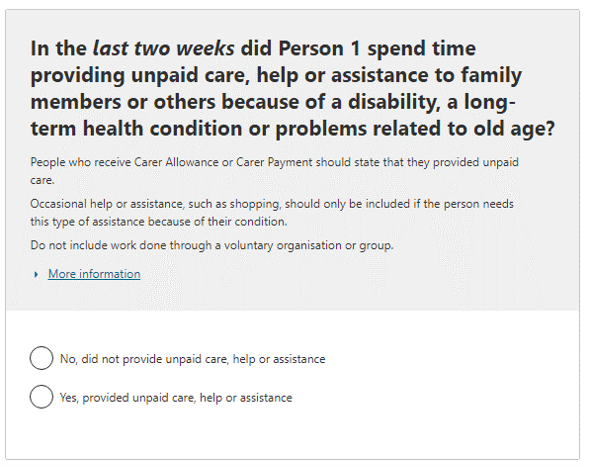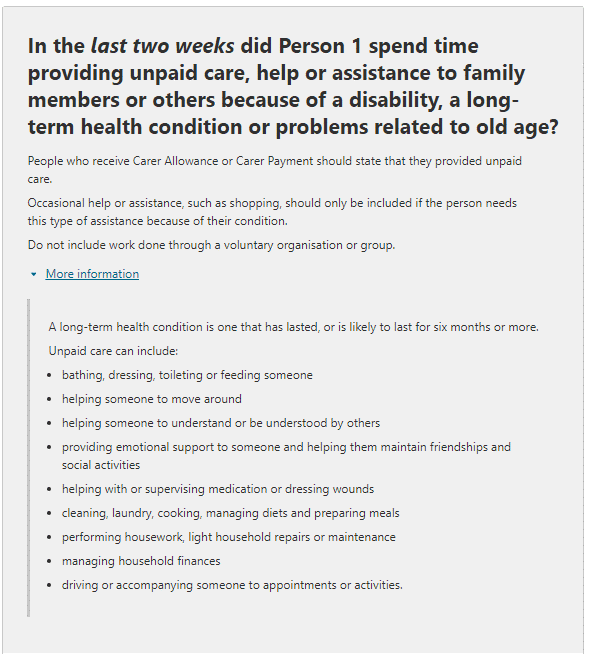Image

Description
More information
Image

This variable records the number of people who in the two weeks prior to Census Night spent time providing unpaid care, help or assistance to family members or others because of:
This includes people who are in receipt of a Carer Allowance or Carer Payment. It does not include care provided through a voluntary organisation or group. Occasional help or assistance, such as shopping, is included if the person needs this type of assistance because of their condition.
Persons aged 15 years and over
| Code | Category |
|---|---|
| 1 | No unpaid assistance provided |
| 2 | Provided unpaid assistance |
| & | Not stated |
| @ | Not applicable |
| V | Overseas visitor |
Number of categories: 5
Not applicable (@) category comprises:
See Understanding supplementary codes for more information.
The responses to the unpaid assistance to a person with a disability, health condition or due to old age question are captured automatically from the mark box responses on the Census form.
Questions on unpaid work and care, including ‘Unpaid assistance to a person with a disability’, were first asked for the 2006 Census.
In 2021, the name of the variable changed from ‘Unpaid assistance to a person with a disability’ to ‘Unpaid assistance to a person with a disability, health condition, or due to old age’.
The question asked about care or assistance provided to another person to assist with daily activities because of disability, long-term illness, or problems related to old age in the two weeks prior to the Census. No information on the amount of time spent on providing such unpaid care was collected. Further to the instructions in the question, the online form prompted respondents to include activities such as (but not limited to):
Care should be taken when comparing Census data on ‘Unpaid assistance to a person with a disability, health condition, or due to old age’ with information from other surveys and publications. The Survey of Disability, Ageing and Carers collects information on the number of carers and their characteristics. Definitions and methodology can differ between different statistical collections and may not match Census definitions.
The name of this variable changed in 2021, however the scope and content remains the same. If using time series data, the variable was previously called ‘Unpaid assistance to a person with a disability’.
The non-response rate for Unpaid assistance to a person with a disability, health condition, or due to old age (UNCAREP) was 6.7% in 2021. This is a decrease from 8.9% in 2016.